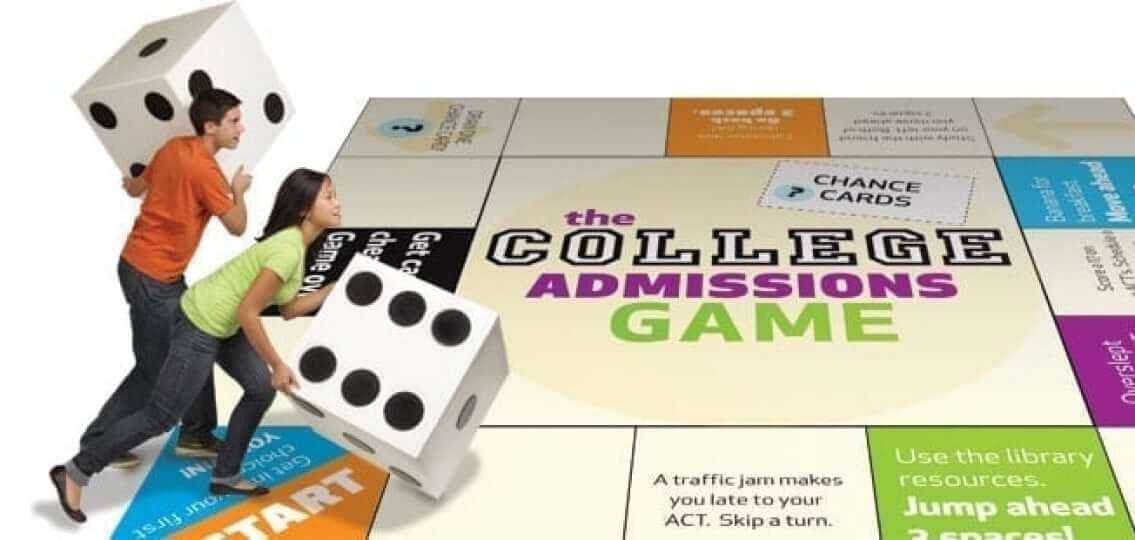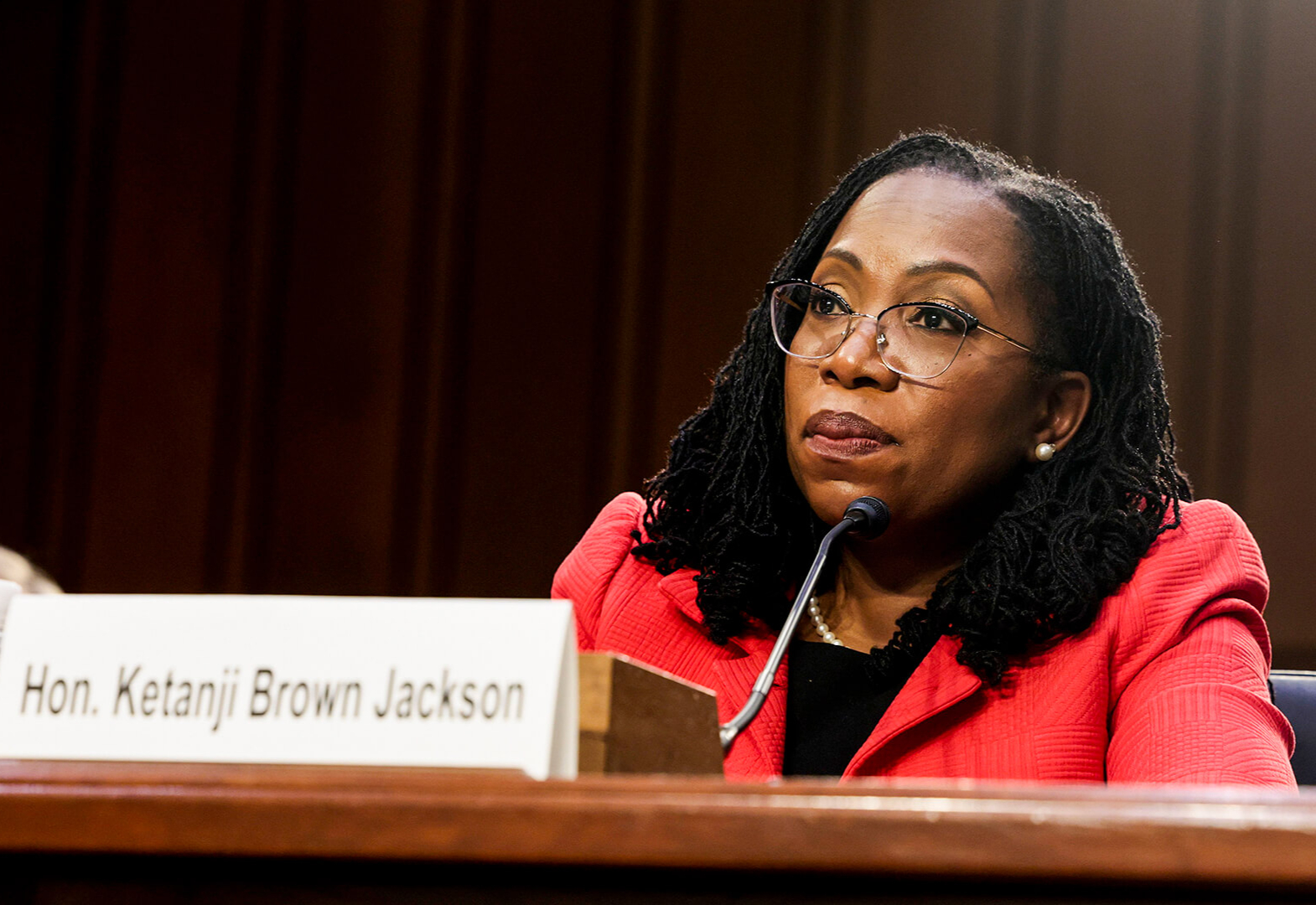The Role of Standardized Tests in College Admissions

Image: Beth Segal
Earlier this week, the Massachusetts Institute of Technology announced plans to reinstate its requirement that students provide their ACT/SAT scores for future admission.
📝 A deeper dive… Like many other colleges and universities, MIT made reporting those scores optional at the start of the pandemic, when many high schoolers were unable to take the tests.
- But unlike most colleges, MIT has decided to bring them back. The school’s dean of admissions explained that the tests “help us better assess the academic preparedness of all applicants.”
- He also said the scores help identify socioeconomically disadvantaged students who may lack access to advanced coursework or other opportunities to show their readiness for MIT.
🇺🇸 Zoom out: Last week, California State University — the largest system of four-year higher education in the country (477,000 students) — said it’s permanently dropping ACT/SAT scores from its admission process, a method known as “test-blind,” citing concerns of racial and socioeconomic disparity in scores.
- Many other colleges and universities have adopted test-optional policies for at least this year's admissions cycle, including all eight Ivy League schools.
- The Common App, the nonprofit behind the standardized college application form, said only 5% of its ~850 member schools are requesting ACT/SAT scores in 2021-2022, compared to 55% in 2018–2019.
How Should Colleges Handle Standardized Tests?

Sprinkles in Favor of OPTIONAL Standardized Tests
Three in five Americans agree colleges and universities should stop requiring standardized test scores for applicants altogether.
- Students (68%) and young Americans (73% of 18-34-year-olds) are even more in favor of this viewpoint.
Source → (Yahoo Finance/HarrisX)
While we don’t yet know the full results of the great pandemic test-optional experiment, emerging evidence from the past year and previous studies of test-optional schools suggest that making entrance tests optional — permanently — is good for higher education and for students. It expands the applicant pipeline, brings more racial, ethnic and economic diversity to campuses, and raises the aspirations of students residing on the tough side of American inequality. Institutions typically claim in their mission statements to be educating future citizen-leaders who will contribute to society, but standardized tests aren’t good predictors of such behavior. Instead, they reify existing wealth and structural advantages. Schools should be encouraging, rather than excluding, excellent students who are not wealthy and face barriers…
It is too soon to evaluate the impact of the great pandemic experiment on college performance, to say nothing of how admission shapes students’ future lives. Yet a recent comprehensive investigation suggests there is no meaningful difference in academic performance among students admitted with and without test scores. One researcher analyzed data from 2008-2016 across nearly 1,700 campuses, comparing schools that switched to test-optional policies with those that did not…
For all the immensely challenging disruptions the Covid pandemic brought to American education, colleges’ decreased dependence on standardized test scores offers a glimmer of hope for a fairer, more inclusive system. Now it is up to schools to accelerate this progress, rather than returning to the old norms of exclusion.
No matter how hard I worked, I was never a good test taker. However, on other types of assignments, such as essays, I performed better. When it came time to apply for college, I only applied to schools that did not require the SAT or ACT. Now, I am at Trinity College in Hartford and achieving my lifelong dream of preparing to be a teacher. The test-optional route allowed me to be where I am today. Therefore, I believe all colleges and universities should offer test-optional admissions…
Wealthy or privileged students’ high schools are more likely to provide SAT and ACT preparation. These students are also more likely to afford top-notch test preparation, where they learn, for example, that the Reading and Science sections of the SAT and ACT are all about the strategies. For example, when I took an SAT prep class, I was taught to merely scan the first sentence and the last sentence of the section I had read, and that understanding the reading was not important. Preparation and expert advice are essential for doing well on the SAT. However, such preparation is only accessible to wealthy students. Online courses cost $100-$2800, while private sessions cost $1,600-$8,000…
Getting institutions to adopt test-optional policies helps many students. We all deserve a chance at college. I’ve known I wanted to teach since I was five years old. It was test-optional admissions policies that allowed me to pursue that passion.

Sprinkles in Favor of REQUIRED Standardized Tests
Most Americans believe that standardized tests serve as an objective measure for colleges looking to compare students across the US (71%), correctly measure a student’s academic knowledge and skills (58%) and serve as accurate indicators of how well students will do with college-level coursework (57%).
Source → (Yahoo Finance/HarrisX)
This impulse [to eliminate testing to allow more Black and Latino students a chance at admission] is based on an assumption that because Black, Latino, Pacific Islander, American Indian and Alaska Native kids, on average, according to the National Center for Education Statistics, don’t perform as well on these tests as their white and Asian peers, the tests must be, in some way, racially biased. But what, really, does that mean? Is it that the tests ask racially biased questions? Which ones? Is it that it is somehow unfair to give a Black or Latino student a test of abstract cognitive skill and that Black and Latino students should be tested differently? This would seem dangerously close to saying that they aren’t as intelligent as others. If that isn’t the intention, then is the inference that there is something cultural, broadly speaking, that hinders their ability to perform well on these tests? If so, what?...
I would prefer that we address the value of the tests second, after first showing that these minority students — including those middle-class and affluent kids who don’t lack resources — can take standardized tests and do just as well, in the aggregate, as white and Asian American students. To me, as a Black American (and, I assume, to many Latino or Hispanic Americans as well) this is Black, or brown, pride.
Instead of reflecting on what amounts to decreased opportunities for all students in the state to attend U.C.L.A. [the school’s admission rate dropped ~4% from 2020 to 2021], the school declared victory. “I’m over the moon,” a U.C.L.A. official told The Los Angeles Times, referring to the increase in minority students. “The years of hard work … bore fruit for us, and it’s a good feeling.”
But Black enrollment at U.C.L.A. went from 6 percent in 2020 to just 7 percent in 2021. Latino enrollment went from 23 percent to 26 percent. Asian American enrollment, for what it’s worth, fell from 42 percent to 39 percent. At Berkeley, Black enrollment numbers fell slightly, while white enrollment went up. Meanwhile, at U.C. Merced, one of the least selective U.C.s, Latino enrollment numbers fell from 54 percent of the incoming freshman class to 50 percent; so did the total percentage of underrepresented minority students entering the freshman class…
If you believe, as I do, that state education should be well funded, deeply rooted in community colleges, extremely cheap and accessible to all without any of the harmful privilege engineering found in the Ivy Leagues, the progressive case for keeping standardized tests, in public schools at least, is relatively simple: The admissions process for state schools should be transparent and more or less automated. If administrators and admissions officers want to regain the public’s trust after the Varsity Blues scandal and decades of escalating tuition costs, the last thing they should do is make the process even more ornate, inexact and prone to bizarre machinations.
Share this!
Recent Discussion stories

Discussion
| March 28, 2022Today’s Russia/Ukraine Update
🇺🇦 Ukrainian troops have partially recaptured the port city of Kherson, according to Pentagon officials, while Russia’s military is currently on the defensive as Ukraine attempts to regain control of towns outside Kyiv.


Discussion
| March 23, 2022Ketanji Brown Jackson's Senate Hearings
🏛️⚖️ Yesterday was Day 2 of confirmation hearings for President Biden’s Supreme Court nominee, Judge Kentanji Brown Jackson, following opening statements from members of the Senate Judiciary Committee on Monday.
You've made it this far...
Let's make our relationship official, no 💍 or elaborate proposal required. Learn and stay entertained, for free.👇
All of our news is 100% free and you can unsubscribe anytime; the quiz takes ~10 seconds to complete